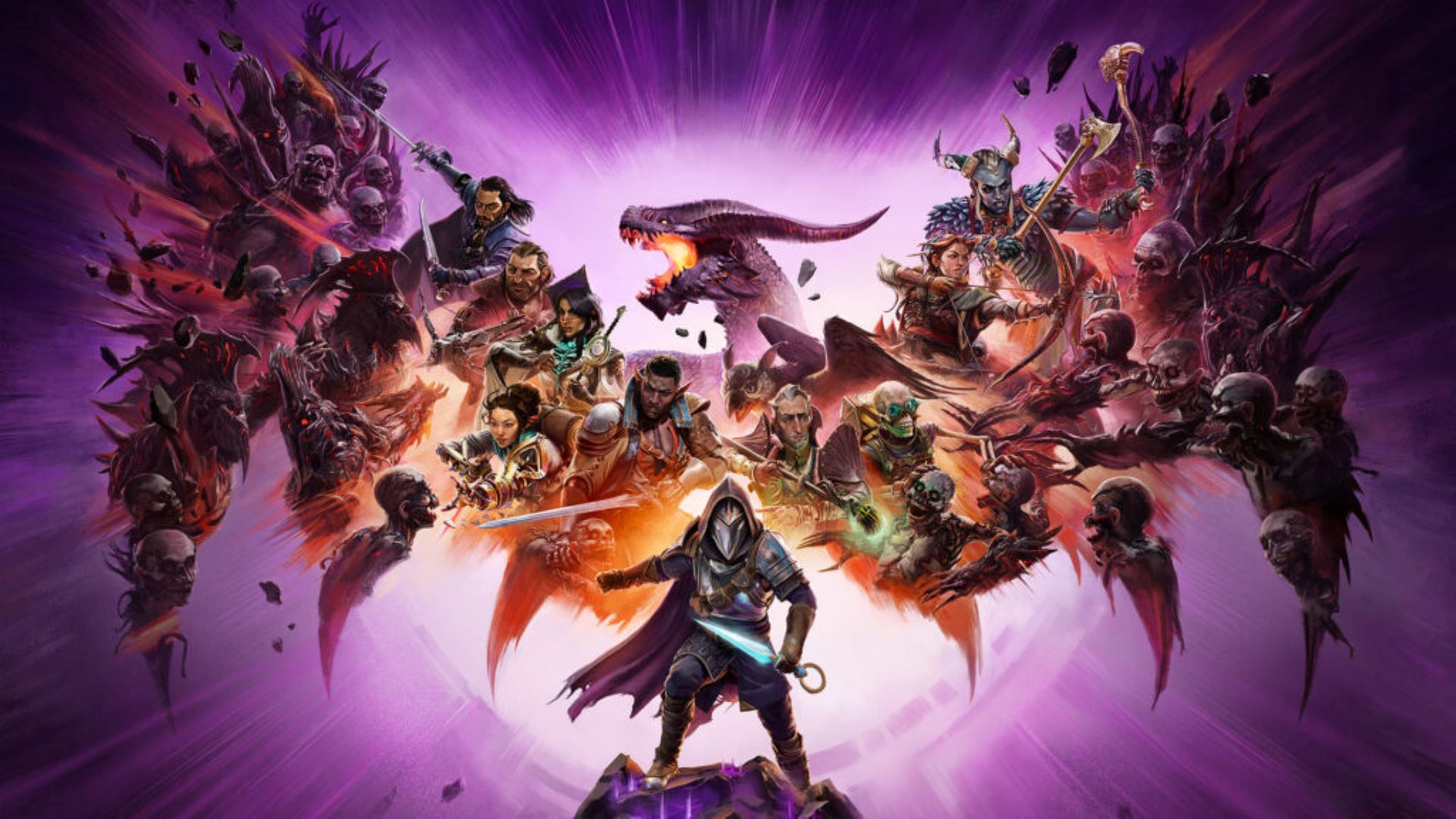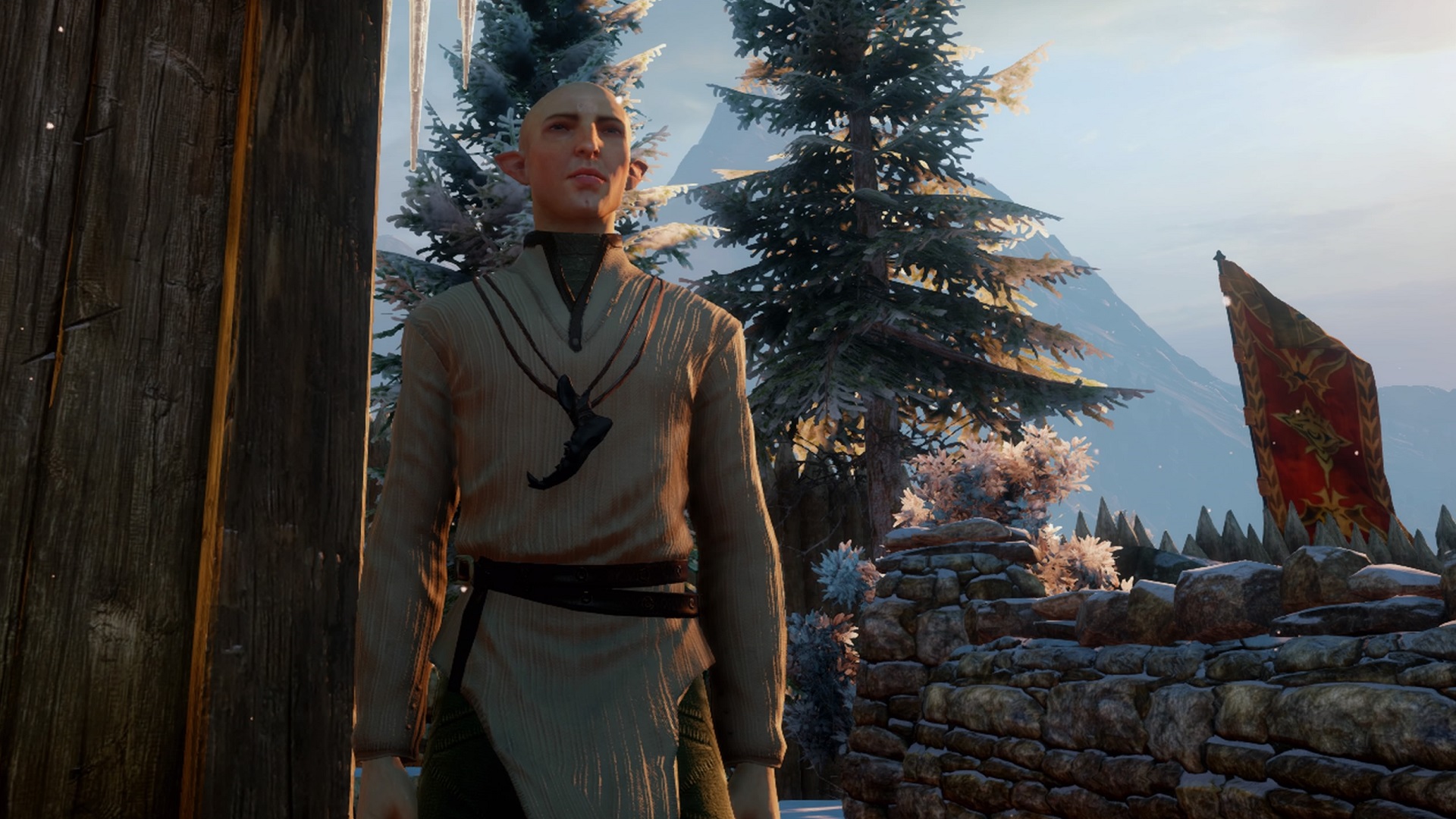
Dragon Age: The Veilguard lead writer Patrick Weekes recently shed light on why the Blood Mage specialization isn't returning, and I haven't been able to stop thinking about it since. "Blood magic is unlikely [to return in the future] because we've shifted it from a power boost to really being the key to a lot of nasty stuff we aren't interested in having heroes do," Weekes said on BlueSky. Given blood magic's murky history in the previous games, it makes complete sense to me that BioWare wouldn't want the next hero to use it in any way - even as a specialization, or "power boost". But I soon found myself thinking about a debate I'd had with Solas about the morality of blood magic in Dragon Age: Inquisition. Before I knew it, I was falling down a rabbit hole of game lore; poring over in-game codex entries and booting up save files to relive certain scenes.
I never need an excuse to delve into the rich history of Thedas, but reading up on blood magic (and magic in general) – which is a contentious topic throughout all three Dragon Age games – has got me reflecting on how the series has let us explore morality in past, and what Weekes' words could imply for The Veilguard.
Bloody history
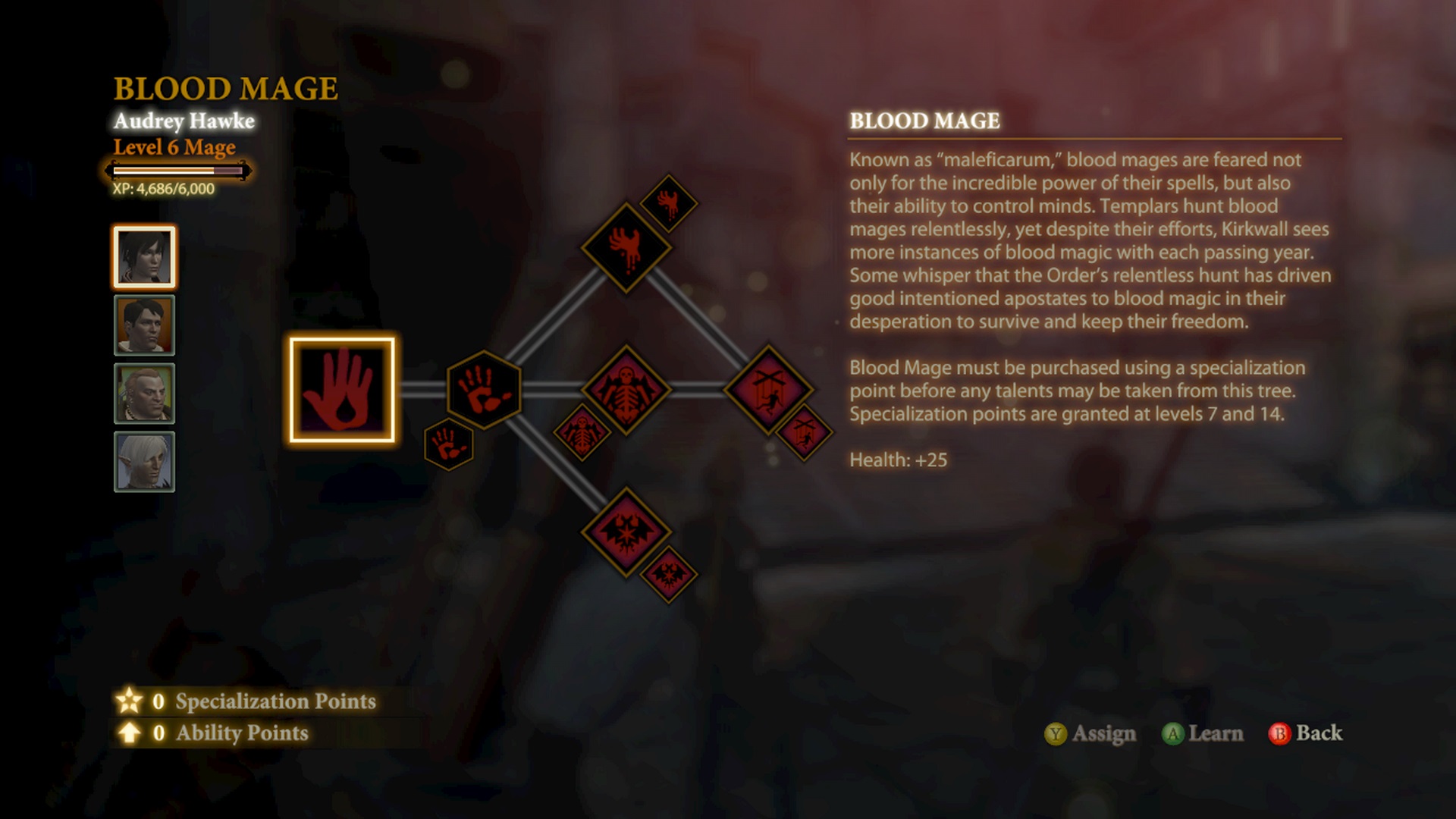
What's so fascinating about Weekes' statement is the idea that BioWare doesn't want the hero of Dragon Age: The Veilguard to be associated with all the "nasty stuff '' that has ties to blood magic. From a narrative and role-playing perspective, I personally think this is an understandable move - particularly when you consider how this form of magic has been presented to us through all three games.
Unlocking the specialization in Dragon Age: Origins is morally questionable in the first place, since you have to make a deal with a desire demon in the Fade. As choices go, it's one of the darkest in Origins, and doing so means that in time, the demon will eventually come to claim the mind of a young boy. In Dragon Age 2, you can spend a special ability point to become a blood mage without any set requirements, but it makes sense here given that you're in Kirkwall which "sees more instances of blood magic with each passing year", as the specialization description reads.
Outside of these specializations in the first two games, codex entries and events across all Dragon Age entries paint a damning image of its use. From references to mind control to sacrificing many slaves in Tevinter for power, and using a blood magic ritual to bind Grey Wardens to demons in Dragon Age Inquisition, it's no wonder it's considered "the forbidden school". And as something that's condemned across Thedas, I can understand why it wouldn't feel fitting for the future hero of Veilguard to use it.
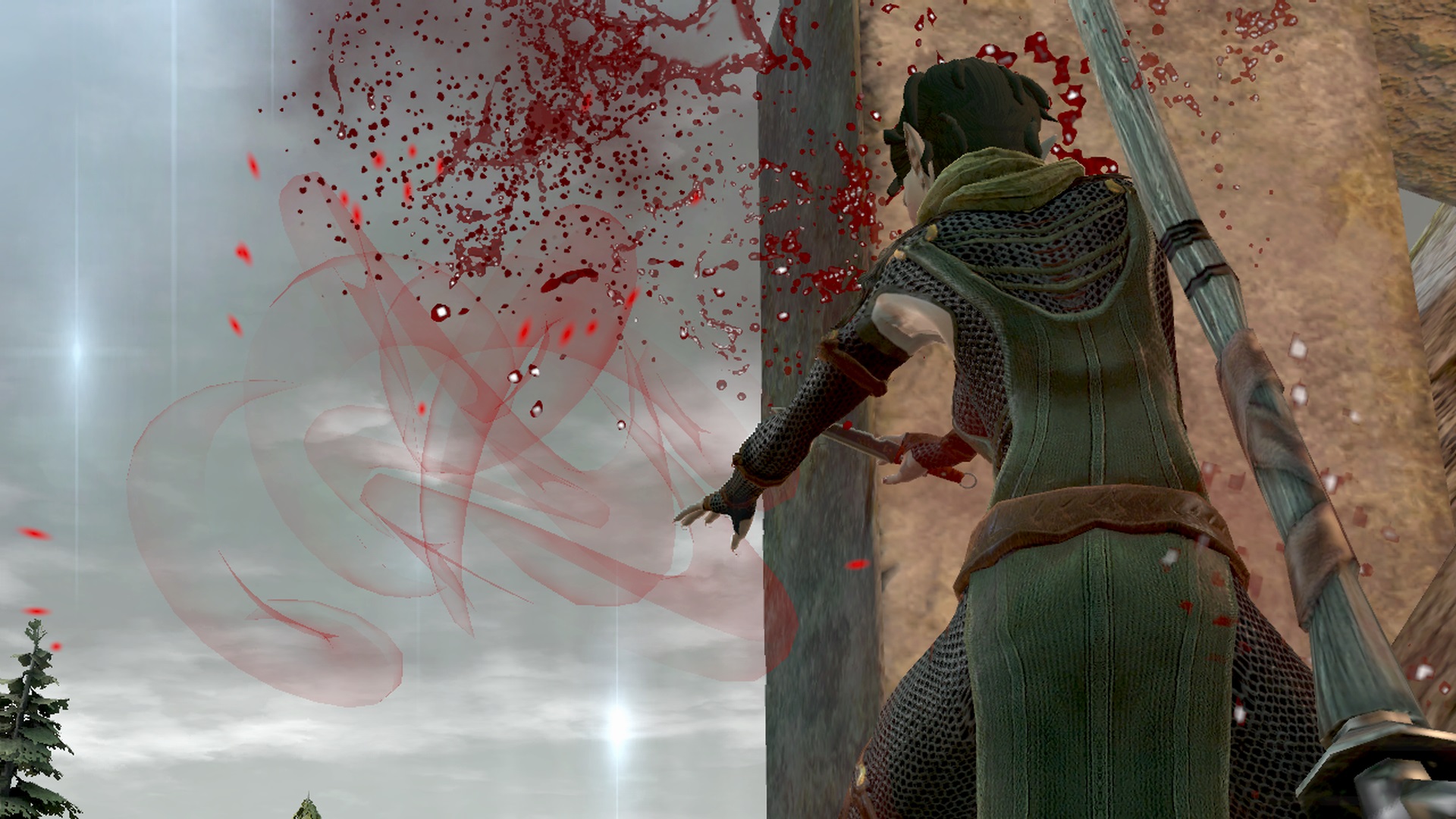
Where it gets especially interesting, though, is when characters like Solas in Inquisition and Merrill in Dragon Age 2 call into question its "evil" status by putting it forward as a helpful tool. In the case of Merrill, she believes that demons are just spirits that can't help what they are, and we see in Sundermount that she uses her own blood to open up a path. As Weekes even suggests, "it can be ethically neutral if you only use your own blood". So if we were to use our own blood, could we still be called heroic? You could argue that it's the ultimate sacrifice, to use your own lifeforce to gain power in the name of saving the day.
While debating the nature of blood magic with Solas in Inquisition, the elven mage calls the censure against it a "superstition". If you then state that it's only ever been used for evil purposes in your eyes, Solas will point out that a dagger can cause just as much harm, and outlawing them wouldn't stop people from wielding the weapon. The one line that particularly sticks with me comes after you point out that the dagger metaphor doesn't work because you don't need to sacrifice a slave's life to make a dagger: "I suppose it depends upon the dagger," Solas responds. "How many men have you killed while fighting for the Inquisition? How many more will you kill out of necessity? And if blood magic could help you? Well, it matters little to me. I do not use it, but I do not think it evil."
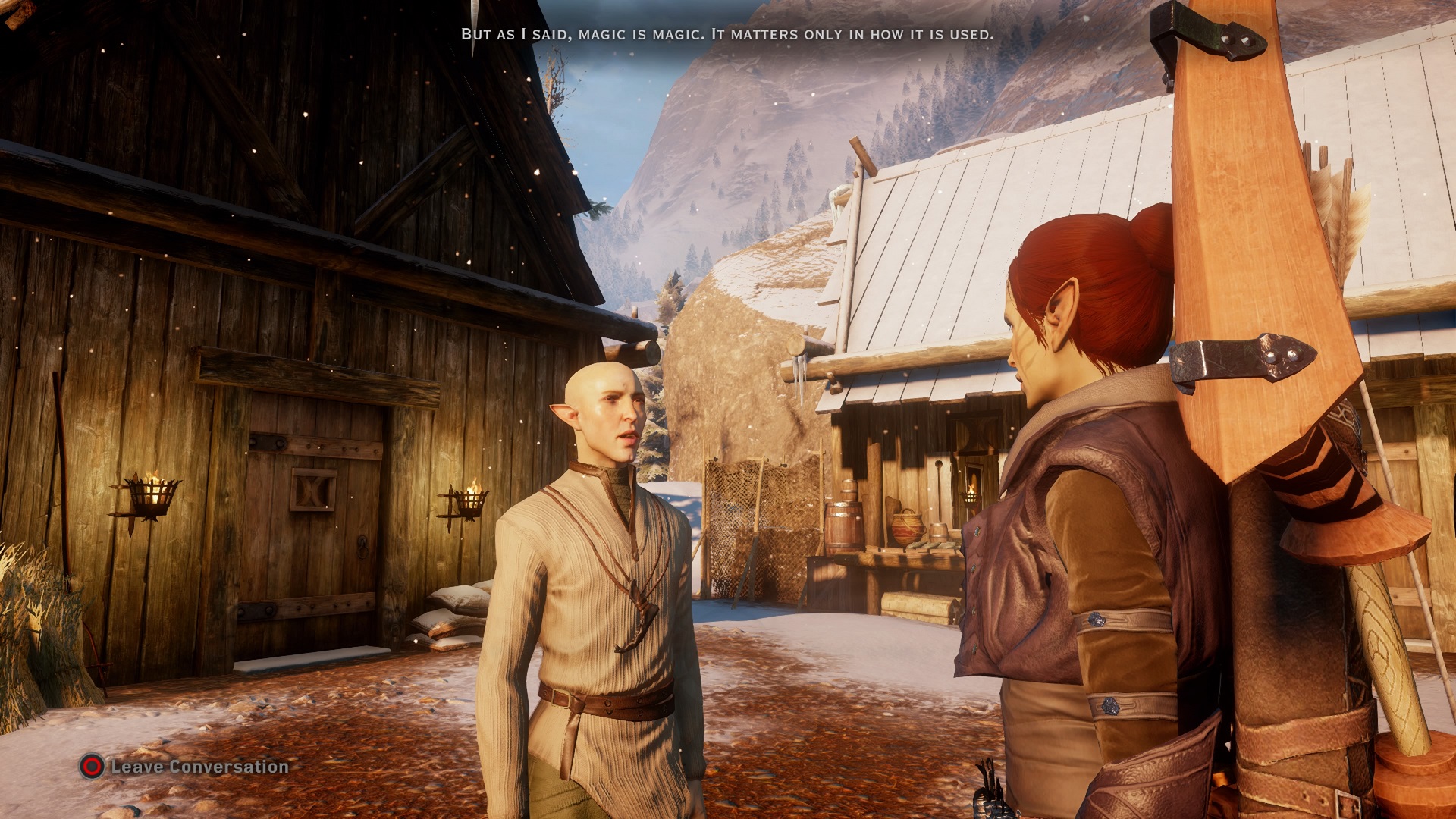
Ultimately Solas argues that it's a tool like any other, but because it's so often associated with the "nasty stuff", we won't be in a position to use it in The Veilguard. It begs the question of whether or not we can actually stray off the path of good (whatever that may be) if we want to, or if it will be more a case of how we choose to try and save the world that will inform our choices. In our pursuit of stopping Solas, could we change course? Or is our path set on going against him? Based on previous games, I suspect it will be more about how we go about it, with the personality-leaning dialogue responses in both Dragon Age 2 and Dragon Age Inquisition seemingly making a return in The Veilguard.
That's not to say we won't be faced with difficult choices in the absence of wielding blood magic. On the contrary, Dragon Age: The Veilguard promises to present "complex choices'' that "will affect your relationships with each member of The Veilguard - and their fate". I always loved the way your actions would determine who was a friend or rival in Dragon Age 2, so I'm all in on the idea that Veilguard is putting the fate of our companions in our hands.
Role-play
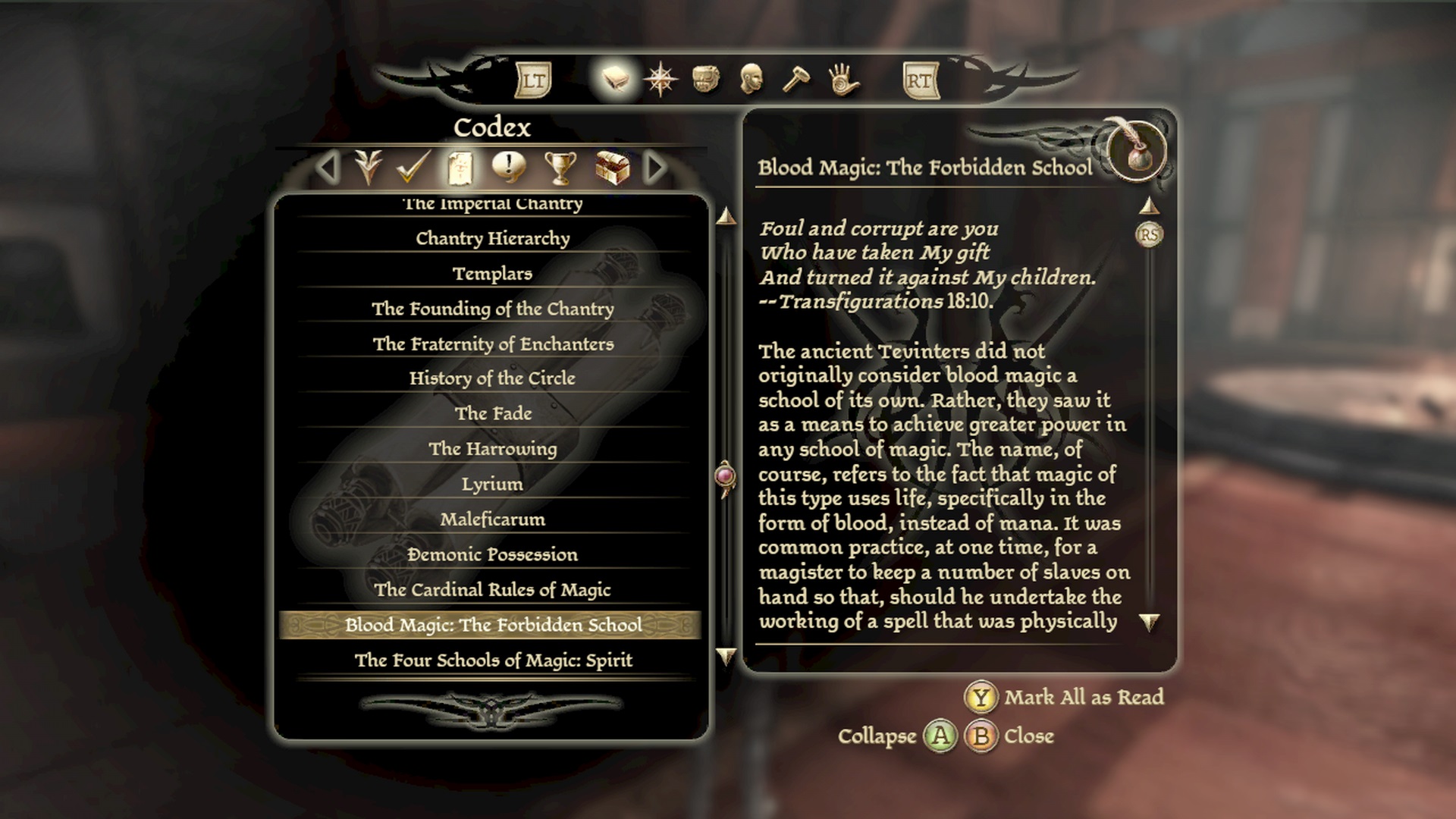
In the Dragon Age series, we're often put into the role of someone who's thrown into impossible circumstances, and it's never really their choice. In Origins, depending on the race and class you pick, the opening section of the game explores how your character ends up joining the Grey Wardens; it's generally preferable or necessary to join as a result of some unfortunate circumstances. Then, suddenly, they are thrust into a Blight where it's now their responsibility to do something about it. It's why, from a role-playing standpoint, it makes sense to me that you could make some morally questionable decisions to get the job done, or stumble along the way if that's the journey you want to shape for your Warden.
Likewise in Dragon Age 2, Hawke soon finds themselves wrapped up in the ever-growing tensions of the templars and mages in Kirkwall, and is constantly asked to pick a side while the arguments for and against either group are thrown in front of you. What you choose to do and how you decide to respond in any given situation will set you down one of the two paths that lead to the same, albeit slightly varied, conclusion. But it will also affect your relationship with those around you.
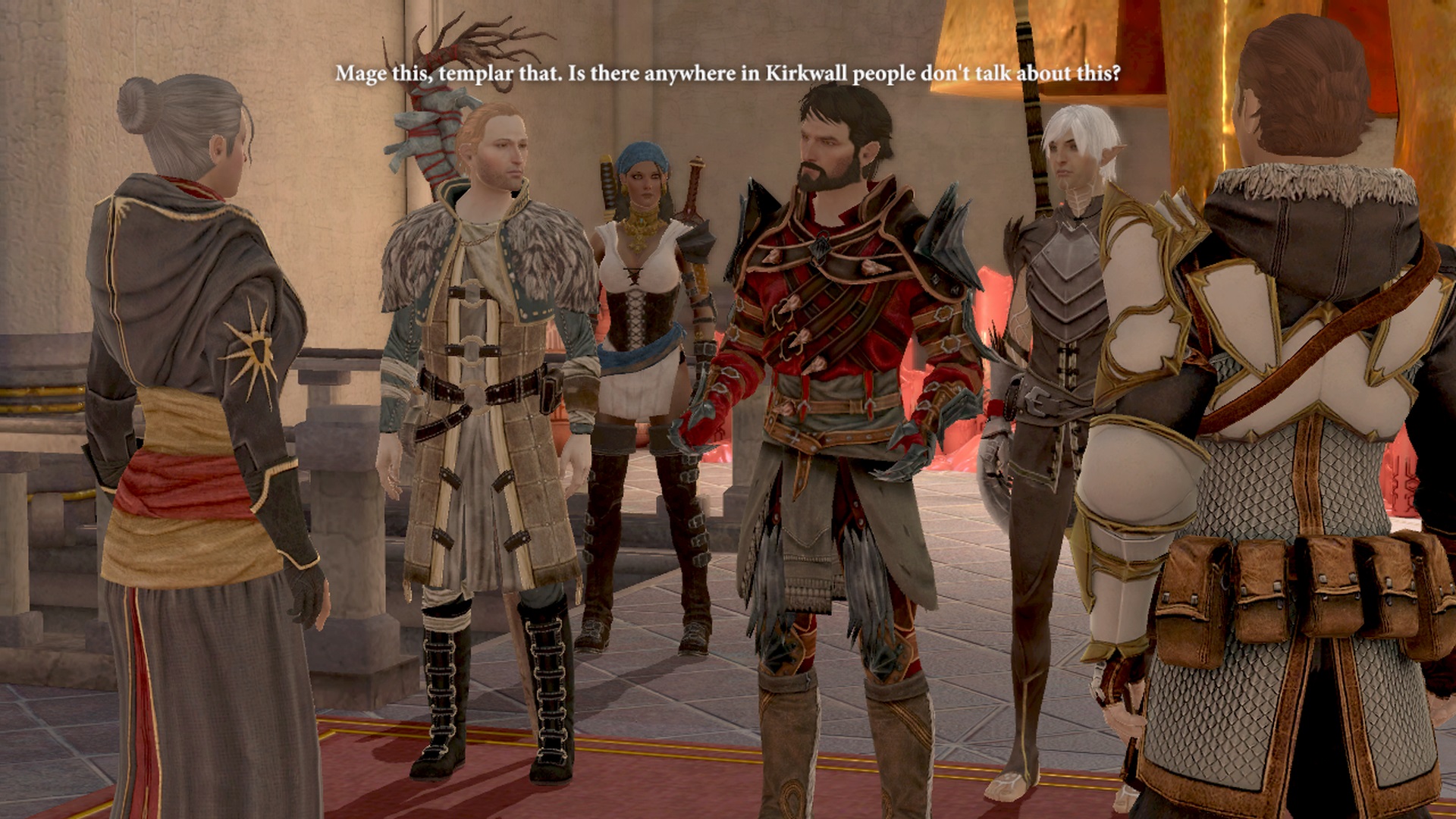
Dragon Age Inquisition puts you into the position of Inquisitor after you inadvertently gain a mark on your hand that can seal rifts in the sky. As the only person with this power, the responsibility falls on your shoulders, whether you want it or not. And how you lead the Inquisition is up to you - whether that be through hard-lined brute force to get the job done, a more compassionate approach, or one that you choose based on the beliefs your character may have based on their race as an Elf, Human, Dwarf, or Qunari.
When we take on the role of Rook, I'm interested to find out how they came to be in their position, and how BioWare will let us shape their journey as we try to save Thedas. I can imagine it will build off of what came before, but I'm keen to see what dilemmas it may throw at us. Blood magic and player morality aren't necessarily tied together in the context of the specialization, since in the words of Weekes, the use of it in combat was more of a "power boost" or tool. But how we often regarded the use of it, particularly in Dragon Age 2, could alter the relationships we had with our companions – be it negatively or positively depending on their worldviews. I honestly find the whole topic of morality and blood magic fascinating, and if nothing else, it suggests that some "nasty stuff" related to the school could be further explored in The Veilguard.
